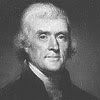- 27 Jan 2013 23:28
#14158536
It’s been said that a conservative knows that he’s right while a liberal knows that he could be
wrong. One takes a dogmatic approach to life; the other applies reason.
The Ideology of Conservatism
In his lecture on “The Origins of the Modern American Conservative Movement” given to the
Heritage Foundation in 2003, Dr. Lee Edwards cited Russell Kirk, author of The Conservative
Mind as providing the central idea upon which American conservatism is essentially based,
calling it ordered liberty.
Kirk described six basic “canons” or principles of conservatism:
1.A divine intent, as well as personal conscience, rules society;
2.Traditional life is filled with variety and mystery while most radical systems are characterized by a narrowing uniformity;
3.Civilized society requires orders and classes;
4.Property and freedom are inseparably connected;
5.Man must control his will and his appetite, knowing that he is governed more by emotion than by reason; and
6.Society must alter slowly.
Edwards states that “the work established convincingly that there was a tradition of American conservatism that had existed since the Founding of the Republic. With one book, Russell Kirk made conservatism intellectually acceptable in America. Indeed, he gave the conservative movement its name.
Looking back at Kirk’s claims, one can examine the statements that “A divine intent, as well as personal conscience, rules society”, and ”Civilized society requires orders and classes.”
This is Russell Kirks Theory of Rationality
The Philosophy of Liberalism
A divine intent pre-supposes not only that a divinity is at hand, but that its intent can be
determined. A personal conscience is, of course, a matter of subjectivity. A religious
view appears to be essential to conservative thought. According to Professor Gerhard
Rempel of Western New England College, “to understand the Enlightenment and the
foundations of democracy is to know that doctrinal substance was less important than
overall philosophy.” It wasn’t as much Descartes’ reason as it was Newton’s Laws. Not
abstraction and definition, but rather observation and experience. The real power of
reason lay not in the possession, but in the I of truth. The ideal for knowledge
was a further development of 17th century logic and science with an emphasis on:
•The particular rather than the general;
•Observable facts rather than principles;
•Experience rather than rational speculation.
Liberalism is more easily recognized for what it is not, than for what it is. Conservatism stands for something. It presents a positive methodology and attempts to justify itself through authoritarian means. It also follows that conservatism must always defend its position and its positive methodology as being rational. Something that it cannot do. Liberalism doesn’t actually stand for anything. It operates from a negative methodology and attempts to peel away things that obscure the truth. Since it doesn’t actually stand for something, it has nothing to defend
irrationally.
Arthur Schlesinger, Jr. points out in his essay on Liberalism in America: A Note for Europeans that “the absence of feudalism is a basic factor in accounting for the pervasive liberalism of the American political climate.” Schlesinger adds that “The absence of feudalism meant the absence of a static and confining social order, and it meant equally the absence of a profound social passion to uproot and destroy that order.” Above all, it appears to be found in the application of critical thinking.
According to Schlesinger, “The use of words like liberalism and conservatism immediately raise questions of definition”. Today, each view tends toward defining the other in the most negative of terms. American liberalism in Schlesinger’s words, feels that “realism is the source of strength, and that illusion, while productive of momentary enthusiasm, will be in the end a source of catastrophe.”
Emerson said, “the basic difference was between the party of the past and the party of the future, between the party of memory and the party of hope. It is still true that the American liberal believes that society can and should be improved, and that the way to improve it is to apply human intelligence to social and economic problems. The conservative, on the other hand, opposes efforts at purposeful change — especially when they threaten the existing distribution of power and wealth — because he believes that things are about as good as they can be reasonably
expected to be, and that any change is more likely than not to be for the worse.”
Ideology: A threat at home, a threat abroad



















 - By wat0n
- By wat0n - By Tainari88
- By Tainari88